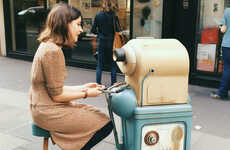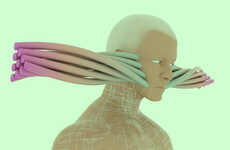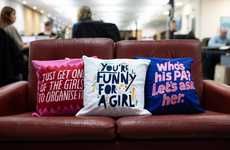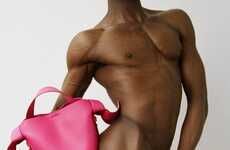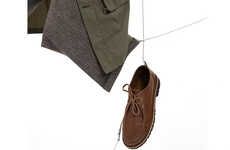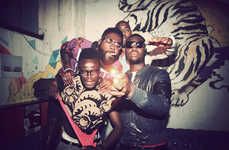
The Heads & Tails Series by Gem Fletcher Focuses on Professions
Meghan Young — November 23, 2012 — Fashion
References: timmacpherson & behance.net
The Heads & Tails photo series can be interpreted a number of ways. First of all, it could simply be a fun concept that was well-executed. Nevertheless, people don't just mix and match genders without another agenda. While the obvious interpretation is the concept of gender identity, another one can revolve around the idea of professional goals. While a man may be socially pushed to become an athlete, ballet is definitely not part of that equation. On the other hand, a woman might be encouraged to become a flight attendant when all she wants to do is go into business.
Shot by Tim MacPherson with art direction by Gem Fletcher, the Heads & Tails photo series may touch on some important subject matters, but it is also very entertaining.
Shot by Tim MacPherson with art direction by Gem Fletcher, the Heads & Tails photo series may touch on some important subject matters, but it is also very entertaining.
Trend Themes
1. Genderfluidity in Profession - The Heads & Tails series explores the possibilities of mixing and matching genders in professions, indicating a trend towards gender fluidity and diverse representation in the workforce.
2. Breaking Gender Stereotypes - By portraying men in traditionally feminine roles and vice versa, the Heads & Tails series represents a growing trend of rejecting gender stereotypes.
3. Intersectionality of Gender and Profession - The Heads & Tails series highlights the intersectionality of gender identity and profession, indicating a trend towards recognizing and celebrating diversity in all aspects of life.
Industry Implications
1. Marketing and Advertising - There is a growing trend towards inclusivity and diversity in marketing and advertising, creating opportunities for businesses to develop campaigns that highlight breaking gender stereotypes and celebrating genderfluidity.
2. Fashion - The fashion industry has the opportunity to embrace and promote gender fluidity by designing clothing that is not gender-specific or that combines traditionally masculine and feminine styles.
3. Human Resources - As the concept of genderfluidity becomes more mainstream, human resources departments have the opportunity to create more inclusive workplaces and hiring practices that embrace diversity in gender identity and profession.
3.5
Score
Popularity
Activity
Freshness




